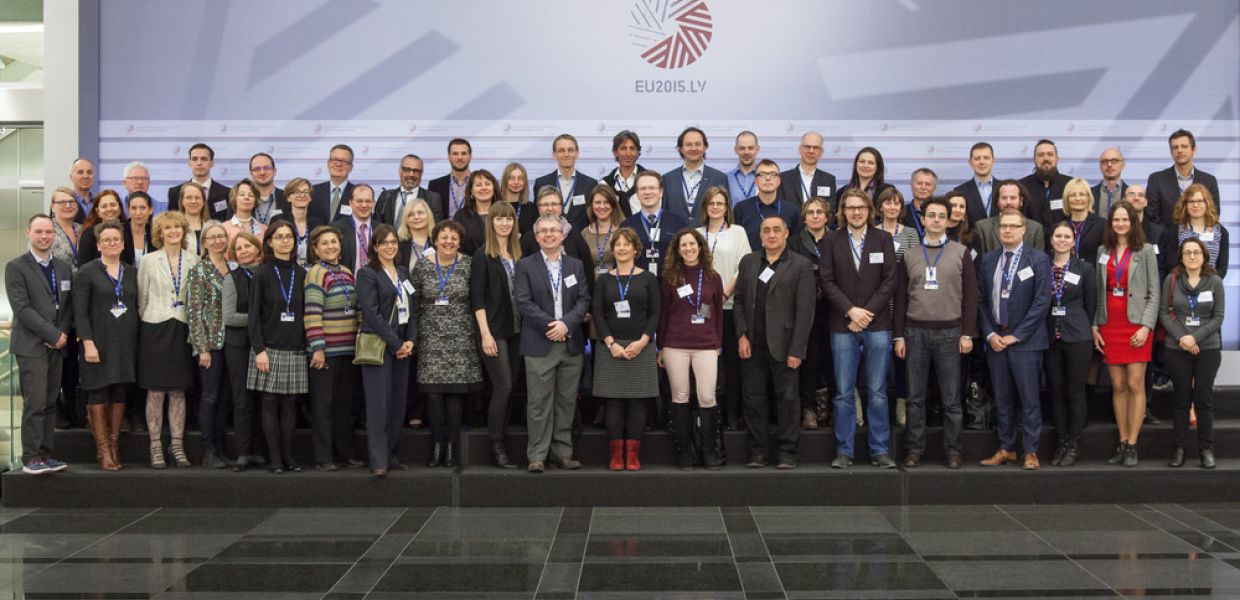Provide ‘Fit for Education and Learning’ content to Europeana say new recommendations

Policymakers from EU education and culture ministries led by Europeana have released a new set of recommendations to encourage better use of digital cultural heritage content in education and learning, supporting Europe’s Digital Agenda commitment to ‘Open Up’ education through the opportunities afforded by the digital revolution.
The nature of learning is changing, and as it increasingly takes place outside of the traditional classroom, and the importance of digital learning grows, demand for engaging and reliable content is rising.
The key recommendations:
- Set up a Europe-wide structured dialogue between policymakers, cultural heritage institutions and educators to improve access and reduce duplication of effort,
- Prioritise the provision of ‘Fit for Education and Learning’ content by cultural heritage institutions and ministries,
- Emphasise the development of inclusive and accessible digital learning resources,
- Promote open licences and improve the access and re-use conditions that underpin education and learning.
These recommendations aim to raise awareness of the availability of digital resources through Europeana and show their clear benefits for education and learners in Europe, while also providing information about proper use of the material, and encouraging the development and sharing of digital learning resources. There are, however, a number of challenges in bringing these benefits to the educational community. As learning becomes more digital, there must be greater Europe-wide dialogue about how we make and create our online resources to be fit for education and learning, and the access and re-use conditions that have to accompany them.
As Steven Stegers, Deputy Director of EUROCLIO observes, "The cultural heritage sector and the community of educators need to work together to open digital heritage collections for educational re-use. Too often copyright restrictions and limited access prevent those who make high quality educational resources from using and sharing collections to do so."
To make digitised European cultural heritage widely available for high-quality education and learning, the recommendations set out a series of proposed actions for policymakers in education which will respond to the changing educational environment.
“We want to make it straightforward for students and their teachers to access the rich cultural heritage which belongs to all of us, regardless of where they live or choose to learn,” says Jill Cousins, Executive Director of Europeana. “We must match the revolution in learning with high quality content, and build strong, productive relationships between the education industry and cultural organisations.”
Aligning its content and services with the needs of teachers, students and the wider education sector would fulfill part of the vision for Europeana. With over 40 million records, Europeana has huge potential as a valued resource for learners at every stage of their education, and at pan-European level. Digital learning resources Historiana, Inventing Europe and institutional sites such as the British Library’s World War One website demonstrate the value of using Europeana’s collections.
The recommendations, which are the work of policymakers and experts in the educational field from 21 different countries, were created at strategy meetings during the Italian and Latvian Presidencies, facilitated by Europeana Foundation, European Schoolnet and EUROCLIO – European Association of History Educators.
ENDS
Notes to editors
Europeana
Europeana is Europe's digital platform for cultural heritage, which collects and provides online access to tens of millions of digitised items from libraries, archives, audiovisual collections and museums across Europe. We are a network, representing more than 2,500 cultural heritage organisations and a thousand individuals from these and other walks of life including the creative and technical sectors, passionate about bringing Europe's vast wealth of cultural heritage to the world. www.europeana.eu
EUROCLIO
EUROCLIO, the European Association of History Educators works from a core mission to support the development of responsible and innovative history, heritage, and citizenship education by promoting critical thinking, mutual respect, peace, stability and democracy. The association counts 71 volunteer history, heritage and citizenship educators’ associations and related institutes from 50 mostly European countries and connects around 35,000 professionals, who in their daily work are in contact with up to 5,000,000 students per year. www.euroclio.eu
European Schoolnet
European Schoolnet is the network of 31 European Ministries of Education, based in Brussels which aims to bring innovation in teaching and learning to its key stakeholders: Ministries of Education, schools, teachers, researchers, and industry partners. Since its founding in 1997, European Schoolnet has used its links with education ministries to help schools make effective use of educational technologies, equipping both teachers and pupils with the skills to achieve in the knowledge society. European Schoolnet provides both Ministries and schools with: information and services relating to the innovative use of educational technology; outreach campaigns on specific educational topics such as maths, science and technology; and research activities. www.eun.org
For more information:
Eleanor Kenny, Head of Corporate Communications eleanor.kenny@europeana.eu
Imogen Greenhalgh, Editorial and Press Officer imogen.greenhalgh@europeana.eu
